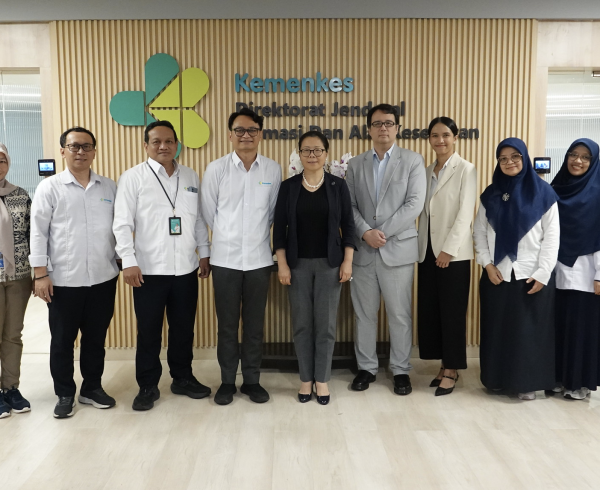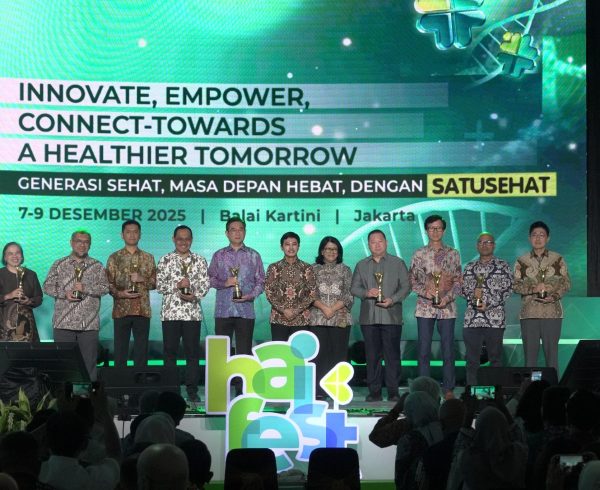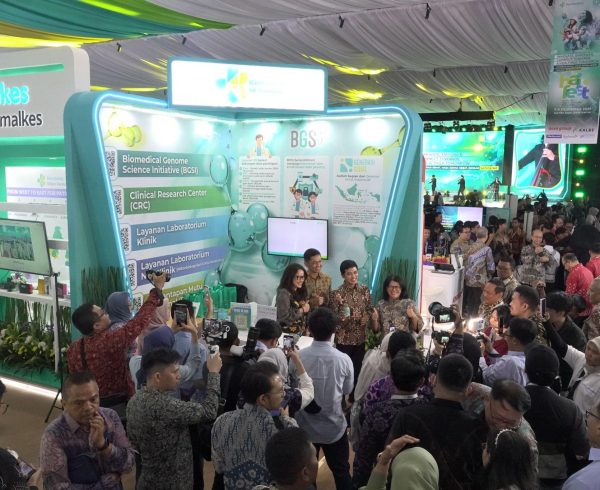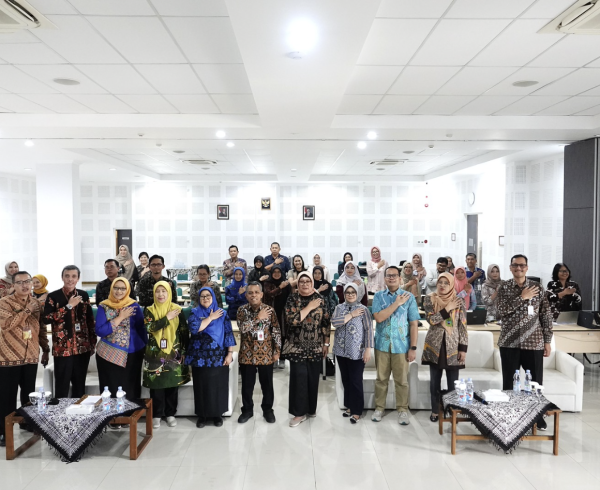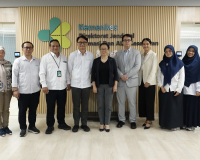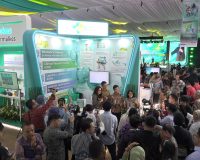Presidential Regulation Number 18 of 2020 concerning the National Medium-Term Development Plan (RPJMN) for 2020-2024 provides one of the policy directions in the health sector, namely increasing access and quality of health services towards universal health coverage, with an emphasis on strengthening the basic health service system by encouraging increased promotive and preventive efforts, supported by innovation and technology utilization.
One of the strategies pursued in this policy direction and also as a national priority is strengthening the health system, including the fulfillment and improvement of the competitiveness of pharmaceutical preparations and medical devices, which is focused, among others, on the efficiency of drug and vaccine supply by prioritizing product quality and strengthening the electronic-based realtime pharmaceutical logistics system.
The provision and management of the budget for medicines and medical devices to meet the needs of the public sector is carried out concurrently between the central government and local governments. The central government takes the role of ensuring that the supply of health program drugs and buffer stocks is adequate, as well as ensuring their safety, efficacy and quality. Local governments play a role in ensuring the availability of basic health service drugs and are authorized to plan drug needs according to their regional needs. Thus, the availability of essential medicines is a shared responsibility between the central, provincial, and district/municipal governments.
The Directorate General of Pharmaceuticals and Medical Devices plays a role in supporting national health development, especially in terms of ensuring access, independence and quality of pharmaceutical preparations and medical devices, one of which is indicated by the availability of drugs and vaccines at Puskesmas.
In achieving this goal, the Directorate General of Pharmaceuticals and Medical Devices through the Directorate of Pharmaceutical Management and Services organized a Coordination Meeting for the Preparation of National Drug Needs Planning in 2022 which was carried out using a hybrid method.
The meeting, which was held in two stages from 13 to 17 June 2022 and 20 to 24 June 2022, was officially opened by the Director General of Pharmaceuticals and Medical Devices, L. Rizka Andalucia, by inviting resource persons from the Ministry of Finance and the Public Procurement Policy Agency (LKPP), attended by participants from the person in charge of pharmacy and programs from provincial and regency / city health offices in Indonesia as well as the person in charge of the central program at the Ministry of Health and the Directorate of Pharmaceutical Management and Services Team.

In her report, the Director of Pharmaceutical Management and Services, Dina Sintia Pamela, said that this meeting aims to prepare a Drug Needs Plan (RKO) for basic and referral health services in 2023 which will be submitted in the process of listing products in the 2023 drug e-catalog to support the implementation of electronic drug procurement through e-purchasing. This is done in order to increase transparency, accountability and efficiency of drug procurement.
At this meeting, a desk was held to compile the 2023 health program RKO which will be used as the basis for calculating the proposed budget ceiling for the provision of health program drugs in 2023. In addition, a desk was also conducted on the proposed needs for provincial buffer stock drugs and supplies in 2022 which will be used for the procurement plan for the provincial buffer stock drug supply package this year.
The implementation of both curative and preventive health programs can run smoothly with logistical support including drugs and vaccines. For this reason, in order to support the activities of the national health program, it is necessary to have drugs and vaccines in the types and quantities that are in accordance with the needs.
In her remarks, the Director General of Pharmaceuticals and Medical Devices, L. Rizka Andalucia, said that the accuracy of drug and vaccine needs planning needs to be achieved to avoid the potential for over-supply or under-supply. The bottom-up drug and vaccine planning system is expected to improve the accuracy of drug requirement planning. Good coordination and integration between the person in charge of the program and the person in charge of pharmacy at every level starting from the Puskesmas, district / city health office, provincial health office to the center needs to be improved.

During the COVID-19 pandemic, RKO reporting through the e-Monev Obat application has not run optimally and still needs to be improved. The challenges faced in the preparation of the RKO and the implementation of e-Monev Obat include the accuracy of planning drug needs and the timeliness of RKO reporting. To overcome this, efforts need to be made to improve the planning of drug and vaccine needs through coordination of integrated drug needs planning activities, both at the district / city, provincial, and central levels as well as monitoring and verification of RKO reporting in stages through the Drug e-Monev application. “I hope this meeting can improve coordination and integration of stakeholders in order to produce an accurate RKO in accordance with the needs,” said Rizka.



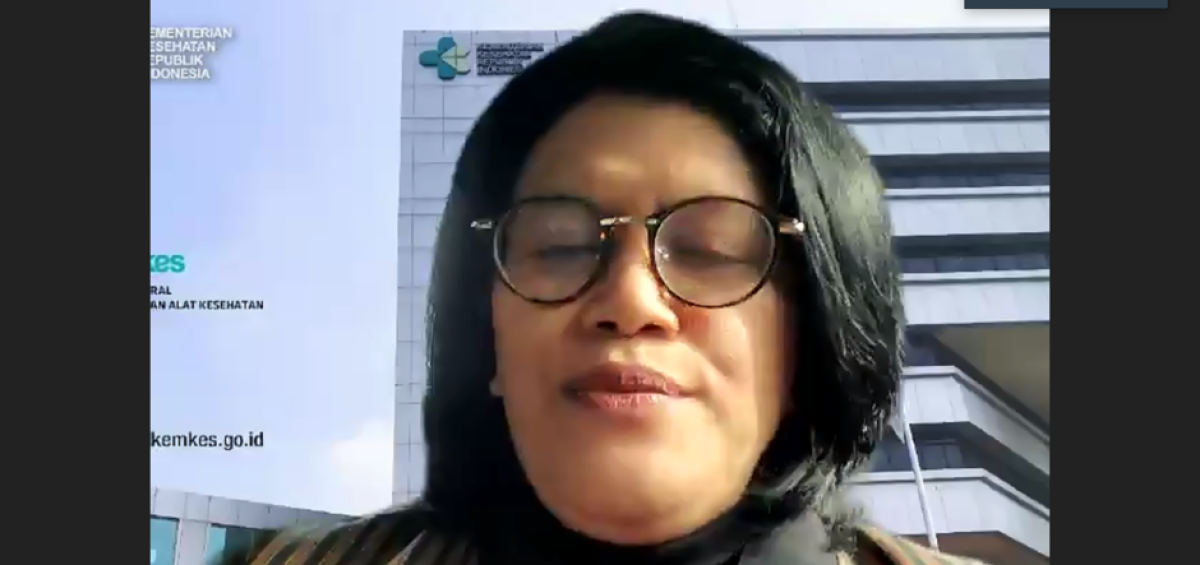 Director General of Pharmaceuticals and Medical Devices, L. Rizka Andalucia opened the 2022 National Drug Requirement Planning Coordination Meeting in Jakarta, June 13, 2022.
Director General of Pharmaceuticals and Medical Devices, L. Rizka Andalucia opened the 2022 National Drug Requirement Planning Coordination Meeting in Jakarta, June 13, 2022.